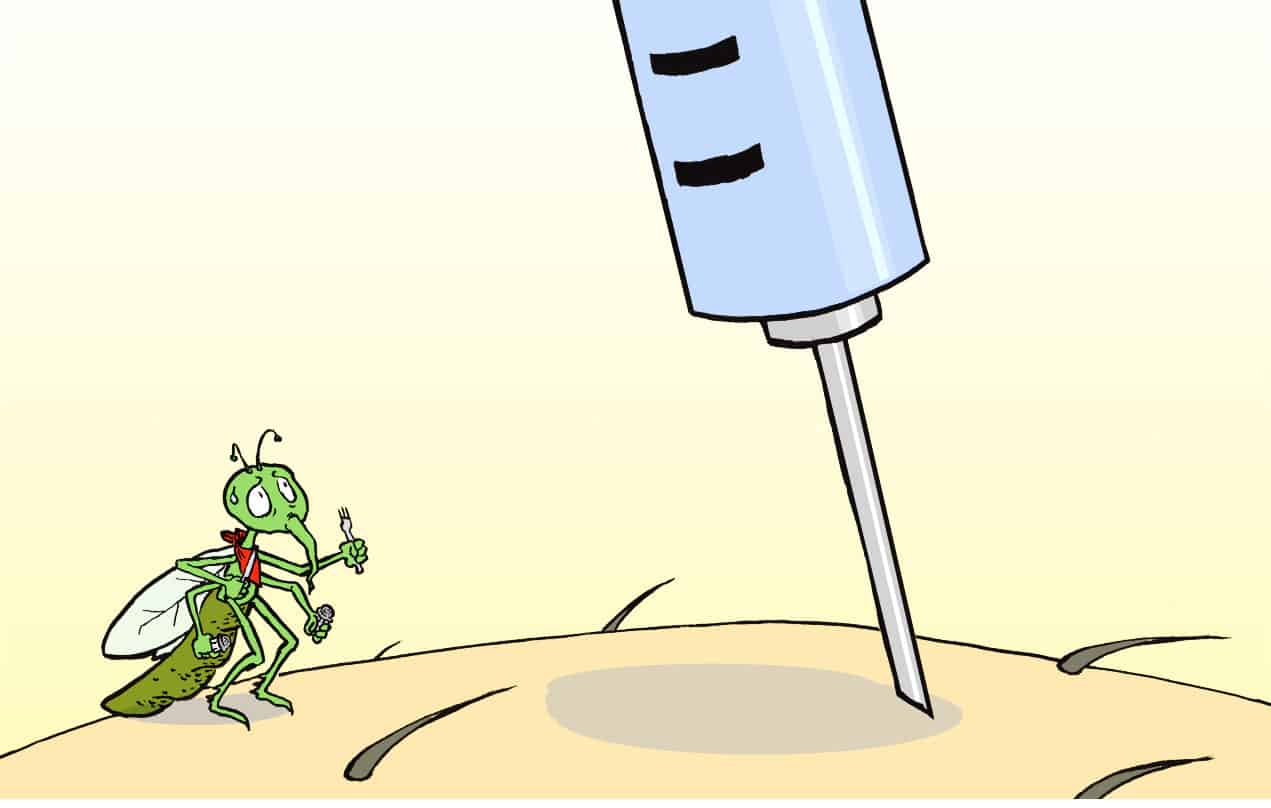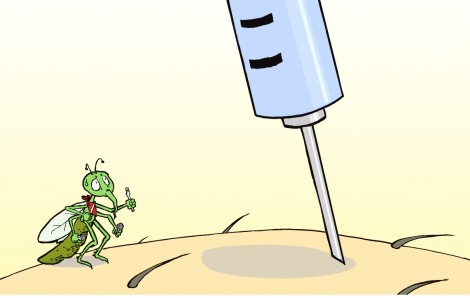Along-awaited breakthrough in vaccine development: Dr. Joe Cohen and his team at GlaxoSmithKline have finally produced the world’s first vaccine capable of significantly reducing the transmission of malaria. His team’s results were recently published in the November issue of New England Journal of Medicine.
Malaria is an infectious disease that affects approximately half the world’s population. It is estimated that over 250 million people are infected with the disease each year, most of whom live in sub-Saharan Africa. While most healthy adults do not die from malaria, the disease is still the cause of approximately one million yearly deaths — most of which are young children who do not yet have an immune system capable of fighting off the disease.
Upon infection, malaria wreaks havoc on a person’s circulatory system through the destruction of red blood cells, which are responsible for delivering oxygen to the body’s cells and organs. The destruction of these cells can lead to many health complications ranging from mild flu-like symptoms (fever, aches, and vomiting), all the way up to more serious and life-threatening issues such as anemia, organ failure, and coma.
Malaria is transmitted from person to person through bites from Anopheles mosquitoes that introduce sporozoite-type parasites into a person’s bloodstream. Once in the bloodstream, these parasites head for the liver where they lay in hiding for between one to four weeks and reproduce. When ready, the parasites release a new type of parasite into the bloodstream — known as merozoite-type parasites — which infect, reproduce inside, and eventually destroy red blood cells. When the red blood cells are destroyed, new merozoites are release and perpetuate the disease.
Medication and methods to treat and reduce the risk of infection are available, such as spraying insecticide and using clothing that covers the body. However, the state of poverty in sub-Saharan Africa prevents many individuals from having access to resources that protect them from the disease. In addition, new developments such as mosquitoes resistant to insecticides and medication-resistant forms of malaria have reduced the effectiveness of current treatment and prevention options.
To help address the growing gap in viable treatment and prevention methods, Dr. Cohen has been working hard with his team for over 20 years to develop a vaccine that could prevent people from being infected with malaria in the first place.
The vaccine, called RTS,S/AS01, helps prime the immune system so that when malaria parasites enter the bloodstream, they cannot make it to the liver to start reproducing. However, since children are the most at risk for developing serious complications from malaria, it is important that the vaccine be effective for them.
To determine whether the vaccine was capable of preventing the spread of malaria in children, a randomized, controlled, double-blind trial was conducted across seven African countries between 2009 and 2011. The study examined the first 6,000 children age 5 to 17 months who were recruited for the trial. The children were randomly assigned to either the vaccine group or the control group, and after 12 months, were followed up to determine whether they were infected with the disease. Results from the study indicated that children who received the vaccine had a 50 per cent reduction in malaria cases versus children who did not receive the vaccine, indicating that the vaccine is effective about half of the time.
Though still early in the trial phase, this vaccine breakthrough has demonstrated that it has tremendous potential in helping protect people from infection. If this vaccine is made available to everyone at risk the number of malaria cases diagnosed per year could drop by up to 125 million. This is a true medical breakthrough and hundreds of thousands of young lives could be saved.



